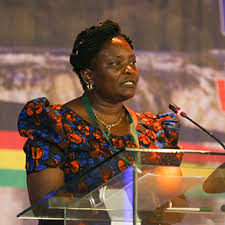By Byron Mutingwende
Africa and Europe are collaborating in space science and technology in pursuit of addressing the growing needs of African countries to access and use Earth Observation (EO) data for the implementation of sustainable development policies on the continent through the integration and deployment of African requirements and needs.
Rungano Karimanzira, the Director of research and technology in the ministry of higher and tertiary education, science and technology development said she was excited by the fact that Zimbabwe had been selected to host one of the five roving seminars/meetings on the modalities of regional implementation of Global Monitoring of Environment and Security and Africa (GMES & Africa) – a collaborative initiative between Africa and Europe in Earth Observation which was adopted in Maputo, Mozambique in 2006 and launched in Lisbon, Portugal, on 7th December 2007 during the 2nd EU-Africa Summit.
“This initiative presents an opportunity for Africa to utilise European’s Copernicus programme infrastructure and facilities with a view to further promoting development and strengthening of local human and technical capacities to effectively access and exploit available EO-based services for use by policy makers towards the attainment of sustainable development in Africa.
It is noted that the First Phase will see implementation of three thematic areas under two services: namely Water and Natural Resources; and Marina and coastal Areas,” Karimanzira said.
The programme is premised on the overall GMES and Africa objectives for a long-term EU-Africa cooperation on space science and technology meant to enable the two continents to jointly solve and address global challenges and promote sustainable development under the Copernicus programme.
These objectives include promoting the development in Africa of local capacities, institutional, human and technical resources for access to and exploitation of EO-based services on operational basis for sustainable development; supporting the implementation of the African Space Policy and Strategy, in particular on Earth Observation; providing decision-makers with information and tools needed for the implementation of sustainable environmental policies at the continental, regional and national levels through their Regional Economic Communities and Implementation Centers (RICs); and maintaining, improving and sustaining access to EO data.
In his speech at the workshop held at Meikles Hotel in Harare, Dr. Tidiane Ouattara, the Space Science Expert and GMES & Africa Support Programme Coordinator at the African Union the event offered an opportunity for the African Union Commission to connect with the Southern African community, and share the state of play of the GMES & Africa initiative.
Tidianne said that the African Aspirations for 2063 were the pillars of the African Union’s new vision which is: “An integrated, prosperous and peaceful Africa, driven by its own citizens and representing a dynamic force in the global arena.”
In that regard, the recently approved Science, Technology and Innovation Strategy (STISA 2024) is an important intervention for using science, technology and innovation to respond to the key priorities of the continent and realize Africa’s aspirations.
“It is a veritable fact that space science and technology are an important enabler for the implementation of any Science and Technology Strategy. And this is true for the African Science, Technology and Innovation Strategy (STISA 2024),” he said.
He added that the manifold benefits that will accrue to Africa from a formal space sector would surely assist to translate the vision for a united, prosperous continent in peace with itself into reality.
That is why the African Union Heads of State and Government adopted in January 2016 the African Space Policy supported by the African Space Strategy that envisions an African Space Programme that is user-focused, competitive, efficient and innovative.
Regarding the Grant and the guidelines for the Call for proposals, Tidiane said that the first phase of GMES & Africa would be implemented through a Euro 17.5 million Grant for Water and Natural Resources service and the Marine and Costal area service.
Charles Paradzayi, the Deputy Executive Dean in the Faculty of Science and Technology at Midlands State University, who is also the President of the Survey Institute of Zimbabwe, said that it was important to bring in earth observation and geospatial activities in addressing the national agenda in the areas of infrastructure development, value addition and beneficiation.
Bradwell Garanganga from the Southern African Development Community (SADC) said that the regional training for the Monitoring for Environment and Security and Africa GMES& Africa) was an initiative which aims to contribute to the well-being of people in the SADC region through reducing the negative impacts from climate induced hazards such as droughts, floods and wildfires.
“It will also contribute to better environmental and agricultural management through evidence based decision-making. Participants from SADC Members states include technical experts from National Meteorological Services, civil protection authorities, water authorities and representative from at least one university per member states. This will assist greatly to see how GMES & AFRICA can better contribute to existing services provided by these entities,” Garanganga said.






